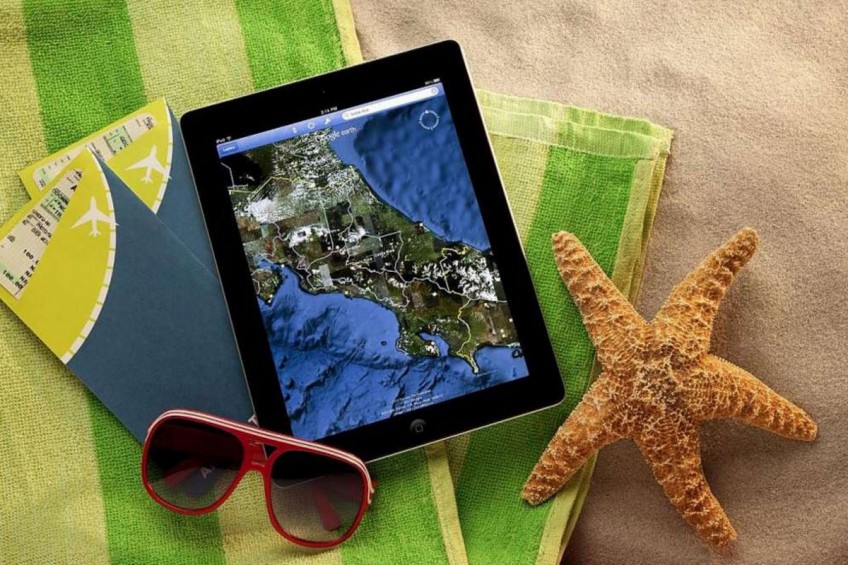Travellers, know your data plan options

Going away this year-end holiday season, but unable to leave behind access to your social networks and e-mails? It pays to plan ahead to secure the cheapest mobile data plans that suit your needs.
Rather than huddle around a Starbucks outlet to get free Wi-Fi, or make a beeline for free network access points, one option is to get a data SIM card in the destination country. But that can prove difficult as not all airports sell them.
You can also pick up a Wi-Fi router at Changi Airport to use overseas. This option is handy if you are travelling in a big group. The router allows up to eight devices to be connected at any time.
Each Wi-Fi router is priced from $12 a day, depending on the destination.
A third option is data roaming on your existing cellphone plan.
Traditionally, telcos' data roaming plans are too pricey for casual use. But in the past few months, new data roaming plans have come up to help consumers keep their costs down.
For instance, M1's pre-paid customers can now use their existing data bundles overseas in Malaysia and Indonesia. StarHub's pre-paid customers can do the same in Malaysia, and in Indonesia from next month.
There are no new developments for post-paid customers who frequently travel. But it pays to know what you can snag in the post-paid plan you choose.
For instance, the daily plans for unlimited data use offered by the three telcos - Singtel, StarHub and M1 - are based on Singapore time.
Planning data use based on when the 24-hour billing window starts and ends in your holiday destination can help avoid incurring unnecessary costs.
Pay-as-you-use bundles seem affordable. But users should turn off the location and notifications options of apps to avoid incurring data charges.
Firing up the Facebook app, for instance, consumes data as well, even though users refrain from posting photos or updates.
Do also note that preferential rates for data access are specific to partner telcos in some countries. Singtel, StarHub and M1 have different partner telcos in many countries.
To avoid "jumping" to a non-partner network - which happens when the original network signal is weak - and be charged extra, users should check which network they are on before surfing or making a call.
You don't want nasty surprises on your holiday.
See also: ChatSim keeps travellers chatting

This article was first published on November 26, 2015.
Get a copy of The Straits Times or go to straitstimes.com for more stories.